Restorative Dentistry In Hillsboro
Keep your smile feeling and functioning at its absolute best with restorative dentistry. From simple procedures like dental fillings, to more complex solutions like dental prosthetics and root canal therapy, restorative dentistry aims to revitalize decayed or damaged teeth. With our comprehensive restorative care, you can take back your overall oral health so you can eat, laugh, and smile with confidence.
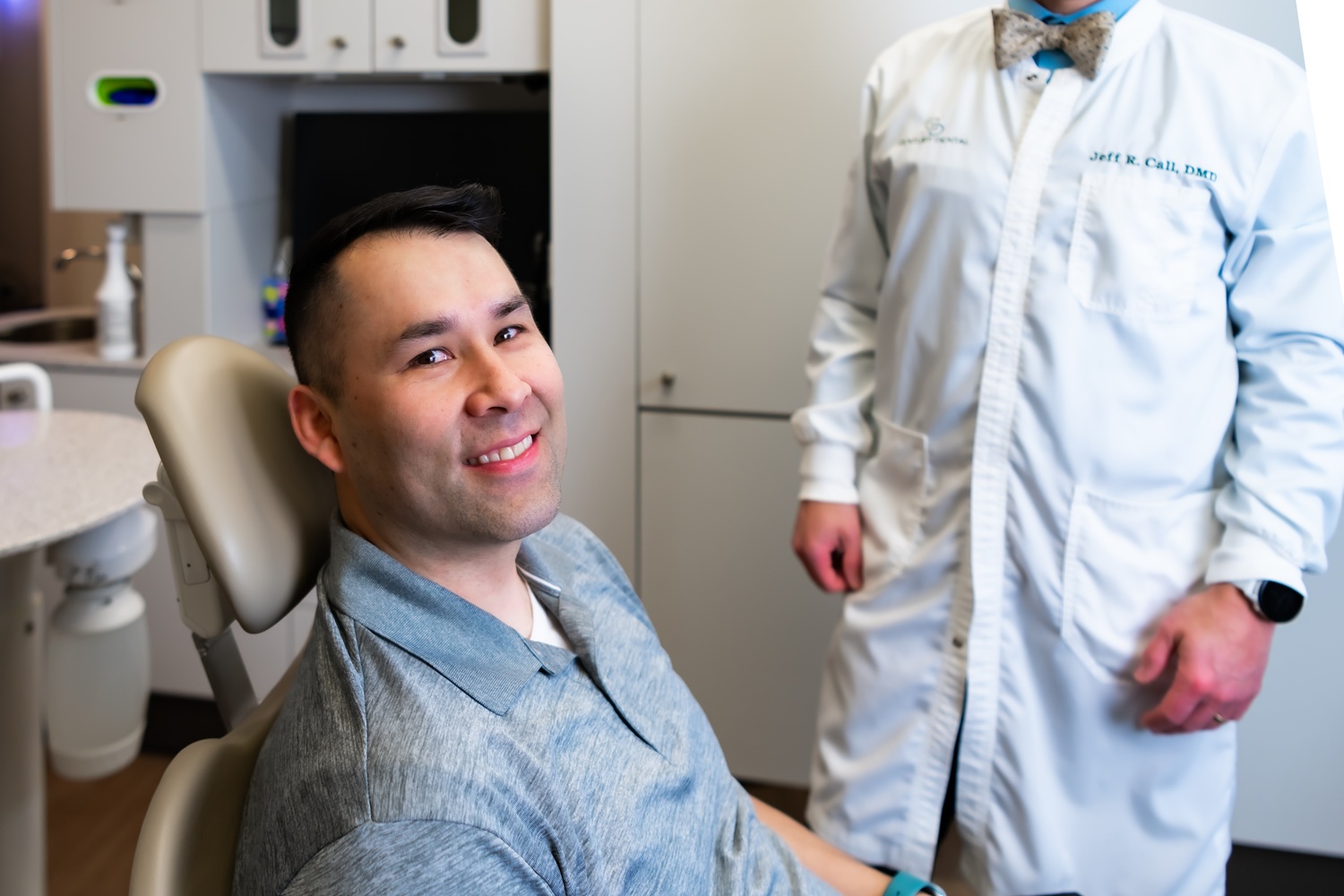
- Mon, Wed
- 8 AM - 5 PM
- Tue, Thu, Fri
- 7 AM - 3:30 PM
- Sat
- Closed
Restorative Dentistry
Dental Fillings
Cavities are one of the most common oral diseases, so it's imperative we tackle them as soon as they begin to compromise the health and wellness of your teeth. When left untreated, they can cause serious discomfort and may require more invasive procedures to alleviate. Thanks to fillings, your dentist can halt the progression of tooth decay in a single visit. By stopping by for your regular 6-month cleaning and checkup, you can prevent new cavities from forming in the first place.

Restorative Dentistry
Same-Day Crowns
No one likes to deal with a broken, cracked, or severely decayed tooth. It can be painful and stressful, but thanks to same-day crowns, you can restore your tooth in a single visit. This allows you to skip the temporary restoration and long wait for your permanent crown. Same-day crowns are custom-made from high-quality, durable materials and color-matched to blend seamlessly with the rest of your teeth. With our state-of-the-art digital imaging and CAD/CAM technology, your appointment will be over in 2 hours or less, so you can start smiling again!

Restorative Dentistry
Dental Crowns
Dental crowns are an excellent solution for restoring your smile if you’re dealing with cracked or broken teeth. These custom-made caps protect the natural root of your tooth while improving your bite’s function. Crowns are also commonly used to enhance the health and strength of your tooth following a root canal or dental implant. With a variety of material options, crowns offer both restorative and cosmetic benefits, helping you smile comfortably and confidently.

Restorative Dentistry
Root Canal Therapy
Toothaches can be a sign of a serious infection and cause significant discomfort. Fortunately, root canal therapy offers a solution to provide the relief you need and restore the health of your tooth. During a root canal procedure, the infected pulp of the tooth is removed, and the area is thoroughly cleaned and disinfected. Once the tooth has been properly treated, it can be restored with a filling or a dental crown to help maintain its structure. Not only can root canal therapy alleviate the pain caused by the infection, but it can also prevent the need for a tooth extraction. By saving your natural tooth, you can smile with confidence and avoid more extensive and costly dental work down the line.

Wisdom Teeth Removal
Wisdom teeth removal may be the most common oral surgical procedure, but it can be a complicated one. That's why it's important to go to an expert. Our doctor specializes in complex issues of the teeth and mouth so you can rest assured knowing your teeth are in expert hands.

Restorative Dentistry
Dental Implants
Transform your smile and your life with dental implants that look, feel, and function just like natural teeth. Imagine rediscovering simple joys—biting into a crisp apple, laughing freely with friends, or speaking confidently in any situation—all without giving your teeth a second thought. Our expert team combines compassionate care with advanced technology to ensure your implant journey is comfortable and rewarding. No more compromising or hiding your smile; dental implants provide a permanent solution that seamlessly integrates with your remaining teeth, giving you back the complete, confident smile you deserve.
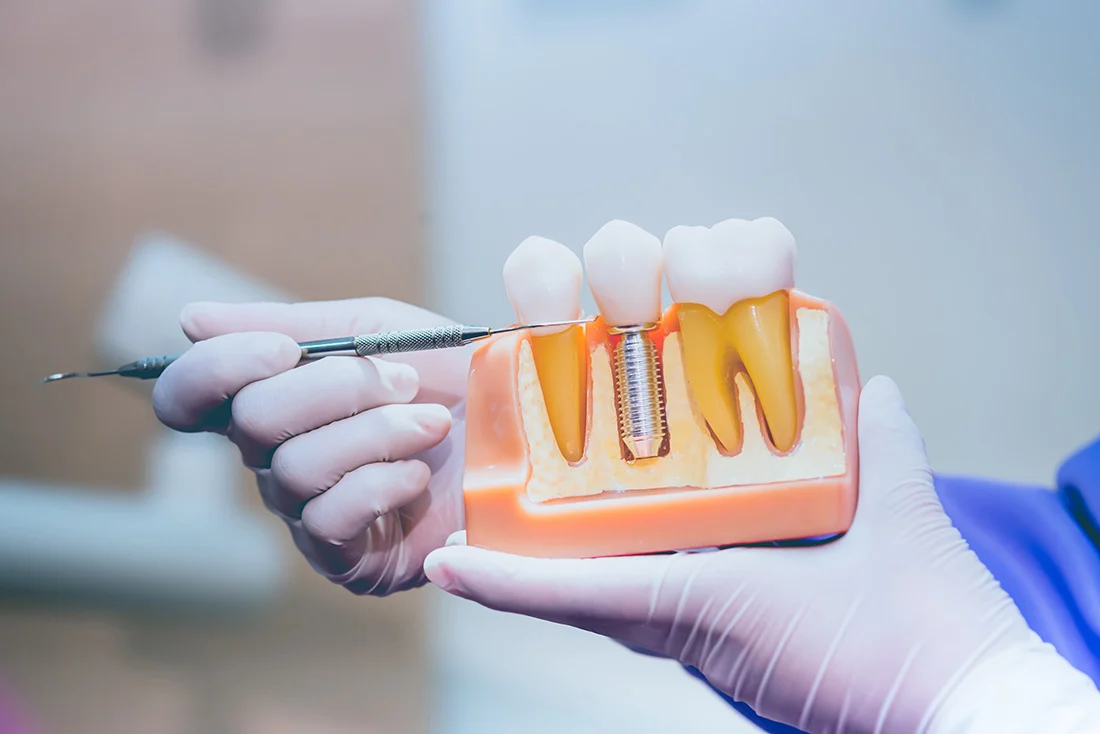
Restorative Dentistry
Dental Bridges
There's no need to keep covering up your mouth if a missing tooth is leaving a gap in your smile. With a dental bridge, the space left behind by one, or several, missing teeth can be permanently covered. The bridge is attached to your teeth on either side of the gap, so it won't slide around when you eat or speak. Your bridge also won't stand out from the rest of your smile — it can be color-matched to blend with your other teeth. Keep your teeth from shifting and reduce the risk of bone loss and problems with your bite by asking your dentist about a bridge. Schedule a consultation today to see if a dental bridge can help you complete your smile!
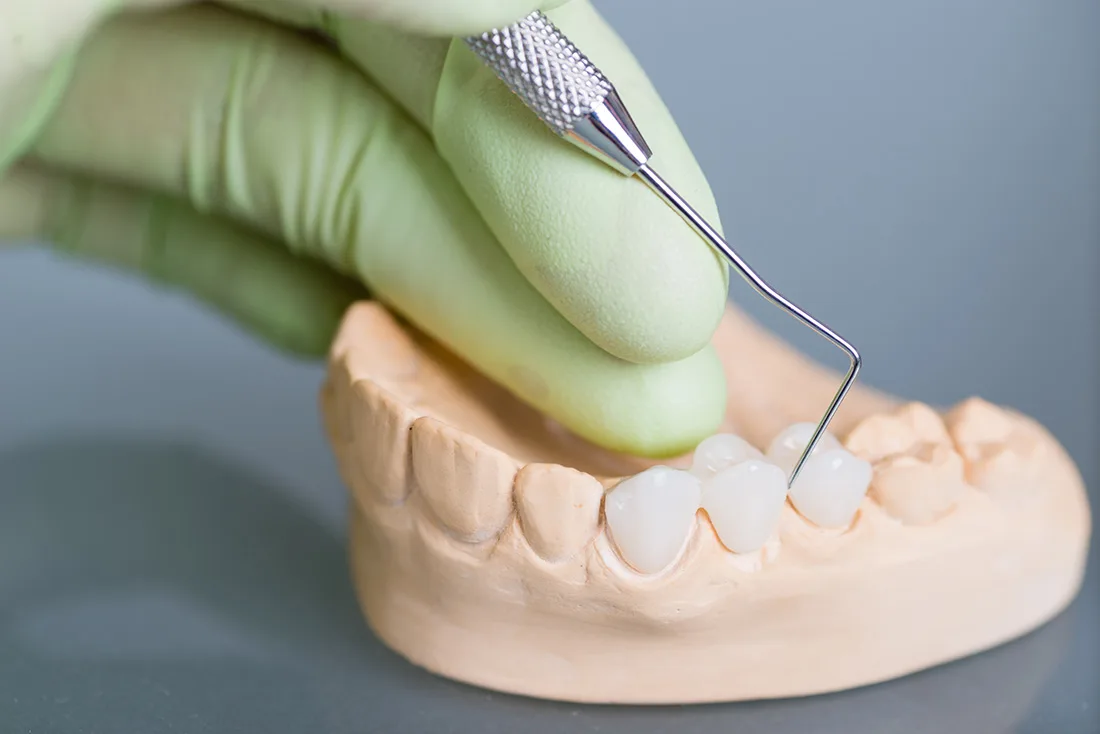
Dentures
Dentures are a removable, affordable solution that can complete your smile after missing one or all of your natural teeth. To ensure a natural look and feel, most dentures are made of a combination of acrylic and metal and are custom-crafted for a comfortable fit. Looking to see if dentures are right for you? Schedule a consultation to find out if a set of full or partial dentures can restore your bite. It's about time you got back to living your life with a smile.
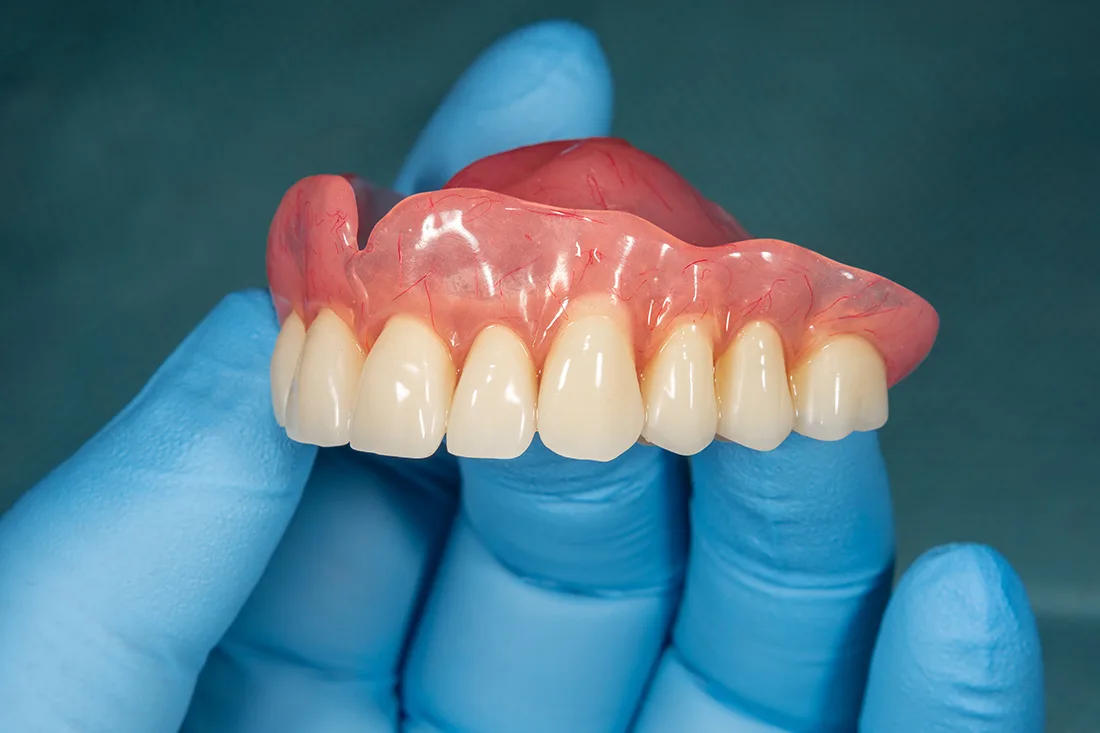
Restorative Dentistry
Implant-Retained Dentures
Tired of your dentures slipping and sliding around in your mouth? Implant-retained dentures, also called overdentures or snap-on dentures, can replace all of your teeth, just like traditional dentures. However, instead of relying on suction or adhesive, they are secured in place with several dental implants. These removable appliances make it easy to keep up with your oral hygiene, and are made from a combination of acrylic and metal materials for enhanced durability.
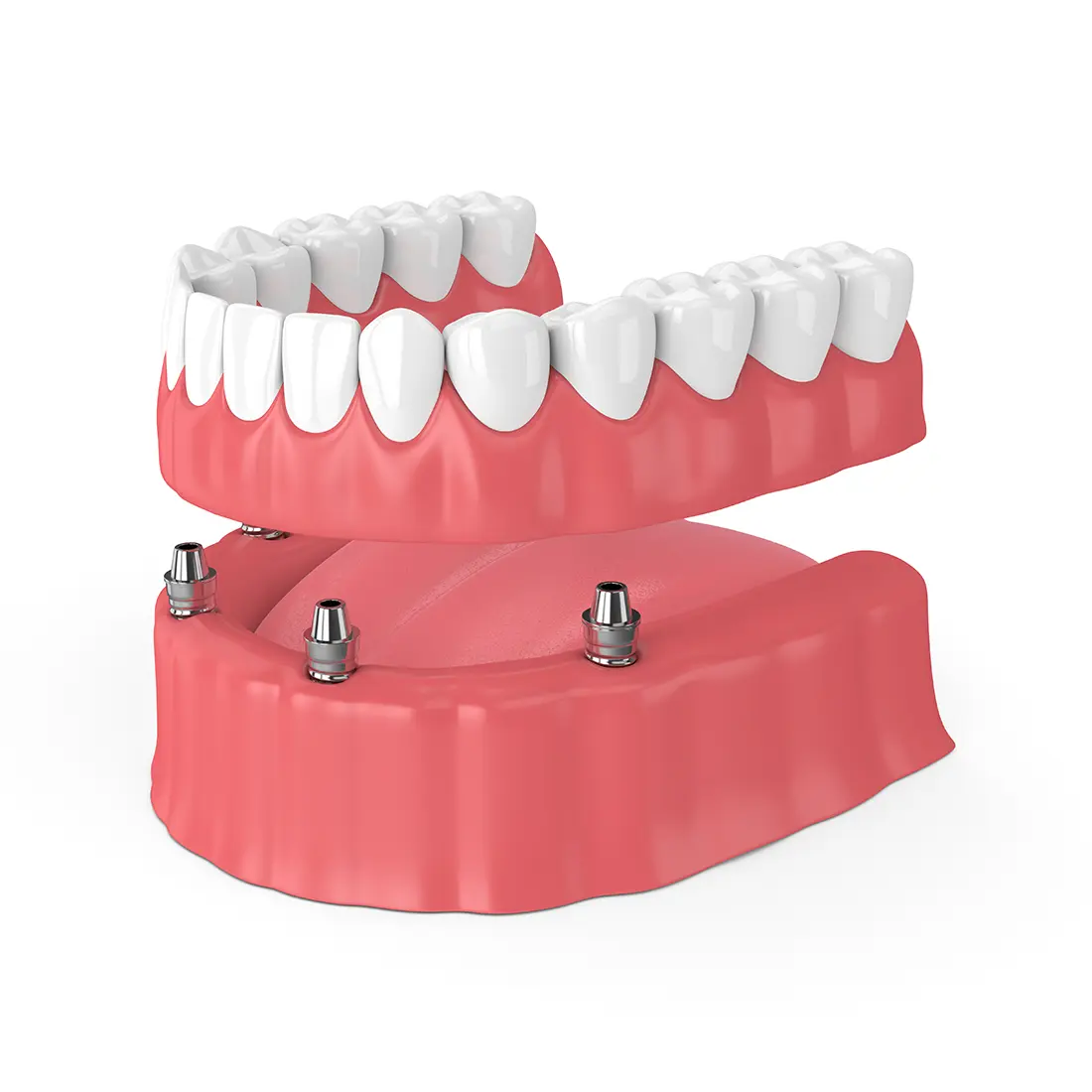
Restorative Dentistry
Implant Crowns
After your dental implant has been affixed, your dentist will make the finishing touches by adding an implant crown! Dental crowns act as tooth "caps" that are fitted onto the implant. Your dentist will ensure the size and color of your implant crown matches with the rest of your other teeth, so you can have a seamless new smile.

Subheading
Frequently Asked Questions
Check out these frequently asked questions, or call us to speak with our team.
.avif)
